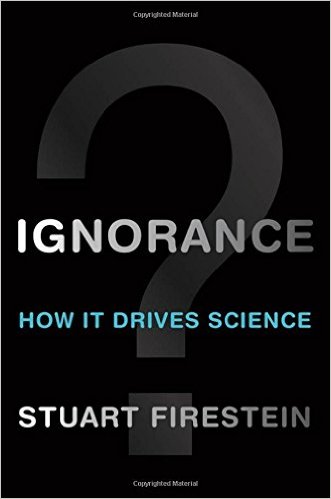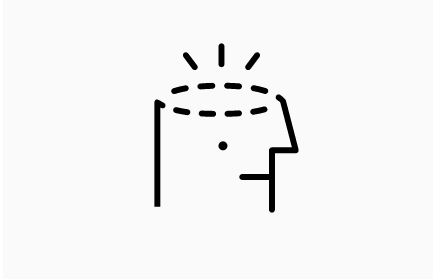How Ignorance Drives Creativity
[In the countdown to the release of The Dance of the Possible: the mostly honest completely irreverent guide to creativity, I ran a series of stories as a countdown – you can see the series here]
“Knowledge is a big subject. Ignorance is bigger. And it is more interesting.” – Stuart Firestein
 It should be no surprise that creative thinking can be counter-intuitive. Often people use the framework of problem solving when talking about ideas, which is useful, but primarily logical. This means the problem itself (“how can I build a better mousetrap?”) and the desire to solve the problem (“mice keep stealing all of my cheese”) provides the fuel to do the work.
It should be no surprise that creative thinking can be counter-intuitive. Often people use the framework of problem solving when talking about ideas, which is useful, but primarily logical. This means the problem itself (“how can I build a better mousetrap?”) and the desire to solve the problem (“mice keep stealing all of my cheese”) provides the fuel to do the work.
But a more powerful way to think about ideas is that it’s ignorance, the lack of knowledge, that can also be the motivating force. Curiosity is an interest in finding out what you don’t know and you can only be curious if you admit ignorance. When you think you know everything, you’re in the worst kind of creative trap. It explains in part why know-it-alls are so dull to be around. They never leave their safe turf of talking about what is already known.
Science is used as a metaphor for things we completely understand. The common saying “the art and science of…” uses the word science to represent formulas, facts and figures, things that are well understood. But how did we learn those formulas and facts? We forget there must have been a time when we were ignorant of those things, and someone, a scientist perhaps, was curious enough to try and figure them out.
Shoshin (初心) is a term from Buddhism that means beginners mind. The notion is that everything, even things we know best, can be reexamined with fresh eyes and that allows us to find new ways of looking. It’s always possible to ask why is it this way? What don’t I see? What other perspective can I explore? The trap is our culture pushes us to believe in the certainty of knowledge and to become bored with the basics. And this is why older generations often can’t see new ideas – their preconceptions and ego in feeling like a master block healthy kinds of ignorance.
In Stuart Firestein’s wonderfully compact book Ignorance: how it drives science, he explores the central role that ignorance, and curiosity, play in developing all of the knowledge that we take for granted today (He did a TED talk on this topic as well).
There are strong parallels in his book to any kind of creative work, such as projects where the goal is to do something new, solve an unsolved problem or to work on anything challenging at all. For many it’s a surprise to think of ignorance being central to science, much less creativity. But if science can be thought of in this way, then so can any field or profession, including the one you work in too.
Here are some favorite quotes from the book:
Questions are more relevant than answers. Questions are bigger than answers. One good question can give rise to several layers of answers, can inspire decades-long searches for solutions, can generate whole new fields of inquiry, and can prompt changes in entrenched thinking. Answers, on the other hand, often end the process.
When I sit down with colleagues over a beer at a meeting, we don’t go over the facts, we don’t talk about what’s known; we talk about what we’d like to figure out, about what needs to be done.
What if we cultivated ignorance instead of fearing it, what if we controlled neglect instead of feeling guilty about it, what if we understood the power of not knowing in a world dominated by information? As the first philosopher, Socrates, said, “I know one thing, that I know nothing.”
There is no surer way to screw up an experiment than to be certain of its outcome.
Here are some examples of what have turned out to be good questions in my class: Do you think things are unknowable in your field? What? What are the current technological limits in your work? Can you see solutions? Where are you currently stuck? How do you talk about what you don’t know? What was the main thrust of your last grant proposal? What will be the main thrust of your next grant proposal? Is there something you would like to work on knowing but can’t? Because of technical limitations? Money, manpower? What was the state of ignorance in your field 10, 15, or 25 years ago, and how has that changed? Are there data from other labs that don’t agree with yours? How often do you guess? Are you often surprised? When? Do things come undone? What questions are you generating? What ignorance are you generating?
Almost everyone believes that the tongue has regional sensitivities— sweet is sensed on the tip, bitter on the back, salt and sour on the sides. Pictures of “tongue maps” continue to appear not only in popular books on taste and cooking but in medical textbooks as well. The only problem is that it’s not true. The whole thing arose from the mistranslation of a German physiology textbook by a Professor D. P. Hanig,
So some things can never be known and, get this, it doesn’t matter. We cannot know the exact value of pi. That has little practical effect on doing geometry.
Thomas Huxley once bemoaned the great tragedy of science as the slaying of a beautiful hypothesis by an ugly fact.
Faraday, by the way, had no idea what electricity might be good for and responded to a question about the possible use of electromagnetic fields with the retort, “Of what use is a newborn baby?” This phrase he apparently borrowed from Benjamin Franklin, no less, who was the first to make the analogy in his response to someone asking him what good flight would ever be after witnessing the first demonstration of hot air balloons.
wrong. Great scientists, the pioneers that we admire, are not concerned with results but with the next questions. The eminent physicist Enrico Fermi told his students that an experiment that successfully proves a hypothesis is a measurement; one that doesn’t is a discovery. A discovery, an uncovering— of new ignorance.
George Box, noted that “All models are wrong, but some are useful.”


Hi Scott,
Typos: The last quoted paragraph is a repeat of para five; in your opening paragraph, the last sentence needs working on.
How sloppy! Hanging my head in shame. Thanks for the note – fixed!
It’s been a while since I visited your site. I love that logo with the blue.
Hi Scott,
I have seen lot of people who are ignorant about the stuff they think they know well but when it comes to doing that always stuck in somewhere. boredom can also be a reason that they don’t pay attention to it as they think they know it very well.
Once i was attending a lecture on focus of mind and lecturer said if you have something challenging then your mind will clearly focus on that otherwise too easy or too tough both can be ignorant topic for you.
Really great summary and I appreciate the direct quotes. I’ve found that so many people focus on finding the solution that they often forget to focus on the problem. I think this is summarized perfectly with “Questions are bigger than answers.”
The title of your site says it all….
It seems sort of insane that we are our own (and our planets) worst enemy, mostly out of our inability to comprehend consequences…
I’m pretty sure there is no way to cure “ignorance” when it seems to be built in…
Like your site, haven’t read any of your book, would love to hear from you.
Regards,
William
Interesting perspective that I hadn’t considered. Ignorance can be a way of breaking the status quo in some aspects.